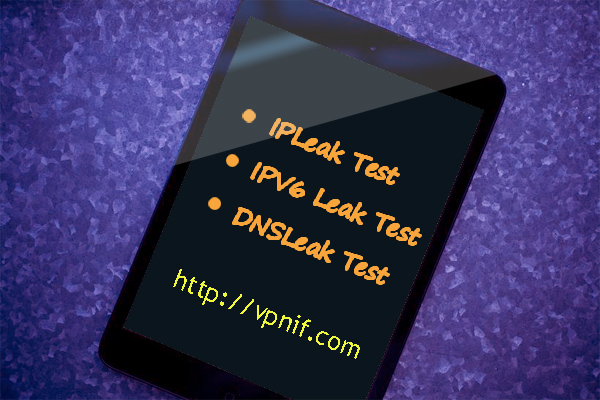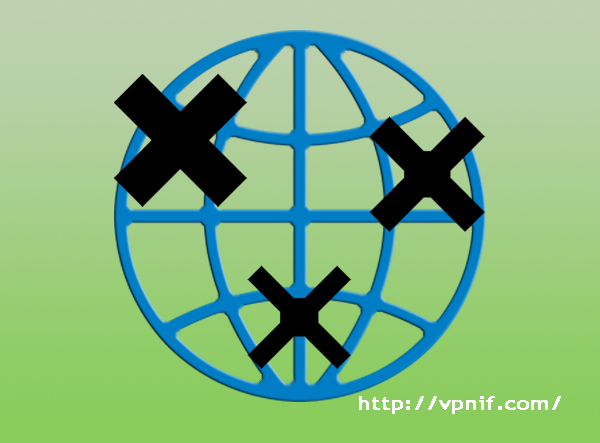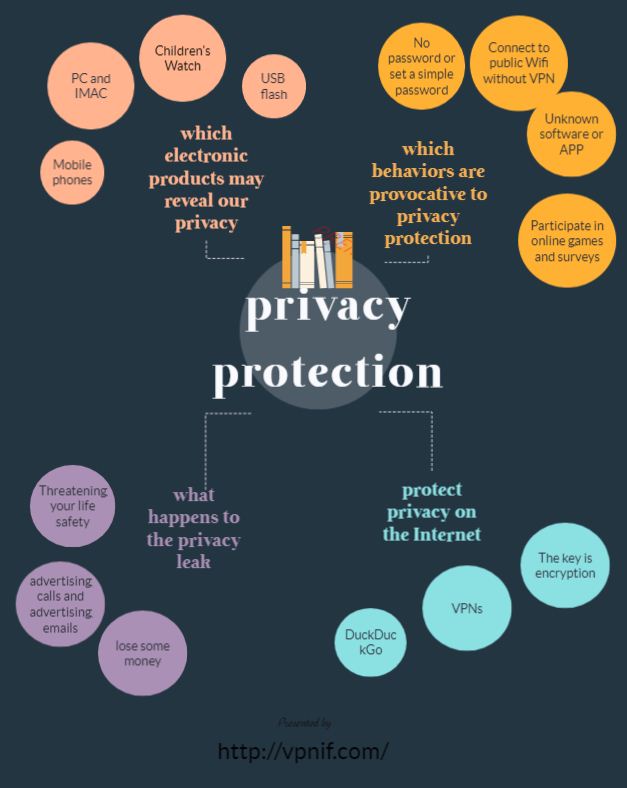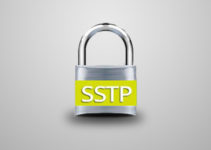Internet is everywhere around us. Your mobile phone, PC, tablet, watch, etc. all of them need Internet support. The question now is whether these electronic products are harmful to our privacy protection? Or is the way we use these electronic products harmful to our privacy protection? Here, we discuss which electronic products may undermine our privacy protection on the Internet and what actions can be detrimental to Internet privacy protection.
First we talk about which electronic products may reveal our privacy.

Mobile phones: With the popularity of smart phones, mobile phones have become an indispensable electronic product for everyone’s daily life. If the mobile phone is not around us, you may be panic.
At the same time, we also store a lot of our personal data in our mobile phone, like your credit card photos, or your meeting minutes, or your chat history.
The fact proved that even if you turn off your smart phones, your data will be copied quietly.
And official surveys show that 90% of apps in Android phones collect personal data from users, and 97% of mobile malware is targeted at Android. This is also the biggest problem for Android as an open source system. Although IOS and BlackBerry are even better in terms of security protection, it is not mean that they have no privacy leaks at all.
Children’s Watch: The positioning function of the children’s watch can really help us, but you may not know that some people can use the children’s watch to get the surrounding sound information. In Germany, children’s watches have been banned. It can be said that Germany is very concerned about the privacy of users.
PC: Computer is the main position of privacy protection, but I don’t think there is much to say about the Internet privacy protection of computers. I think that people know PC more than mobile phones. But you must not take it lightly.
Electronic devices such as power bank, USB flash drives, and smart homes may become channels for your personal data disclosure.
Then, we discuss which behaviors are provocative for Internet privacy protection.
- Do not set a password or set a simple password
- Do not handle old phones with care
- Connect to public WiFi without VPN
- Unknown software or APP
- Turn on your Bluetooth
- Participate in online games and surveys

Now let’s see what happens to the privacy leak.
After the privacy of the Internet leaks, you may receive more advertising calls and advertising emails. When you browse the web, you may be placed with accurate ads. Of course this is the best result.
Even more frightening is that crime with your privacy. you may lose some money, but perhaps your life safety even the safety of your family’s life will not be effectively protected.
Finally, we think about how to protect privacy on the Internet.
This article in the New York Times tells us about nine things that privacy protection on the Internet should do. The key is encryption, encrypting our files, encrypting our mailboxes, encrypting all our data and communications, and being cautious about unfamiliar applications and software. Brian X. Chen, a New York Times personal technologist, recommends using VPN to block browsing information, encrypt all data coming in and out of your computer or phone, and hide your location.
Some VPNs are free and some require payment. I think it’s worthwhile to spend a few dollars a month to protect our privacy. Don’t wait until bad things happen before you regret it. Therefore, I suggest that you purchase paid VPN services. The VPN service providers with very good security are NordVPN, ExpressVPN, VyprVPN. Any one of the three is trustworthy.
Using DuckDuckGo is also a great option when you search for sensitive words. Tor is also known as an anonymous browser, which makes it impossible to track your data. Of course, there is one more point. Everyone needs to pay attention, that is, don’t trust the promise of technology companies. For example, “Invisible Mode”, “Anonymous Browsing”, “Zero Logging”, etc., for your privacy protection, you must read their privacy terms carefully.
https://medium.com/@1mikeowen/getting-my-family-to-take-privacy-seriously-afe0e40a6b56 This can still show you how to protect your privacy too.
The way of information leaking is more and more advanced and convenient, and we have nowhere to hide. Unconsciously, we were peeped, tracked, visited, and harvested as amaranth. The 2018 Global Data Loss Cost Study, launched by IBM Security and the Ponemon Institute, shows that data breaches in 2018 have exceeded 2017, and last year’s average size increased by 1.8%, compared with 2.2% this year. This also shows that the data leakage has not improved, but has worsened.




